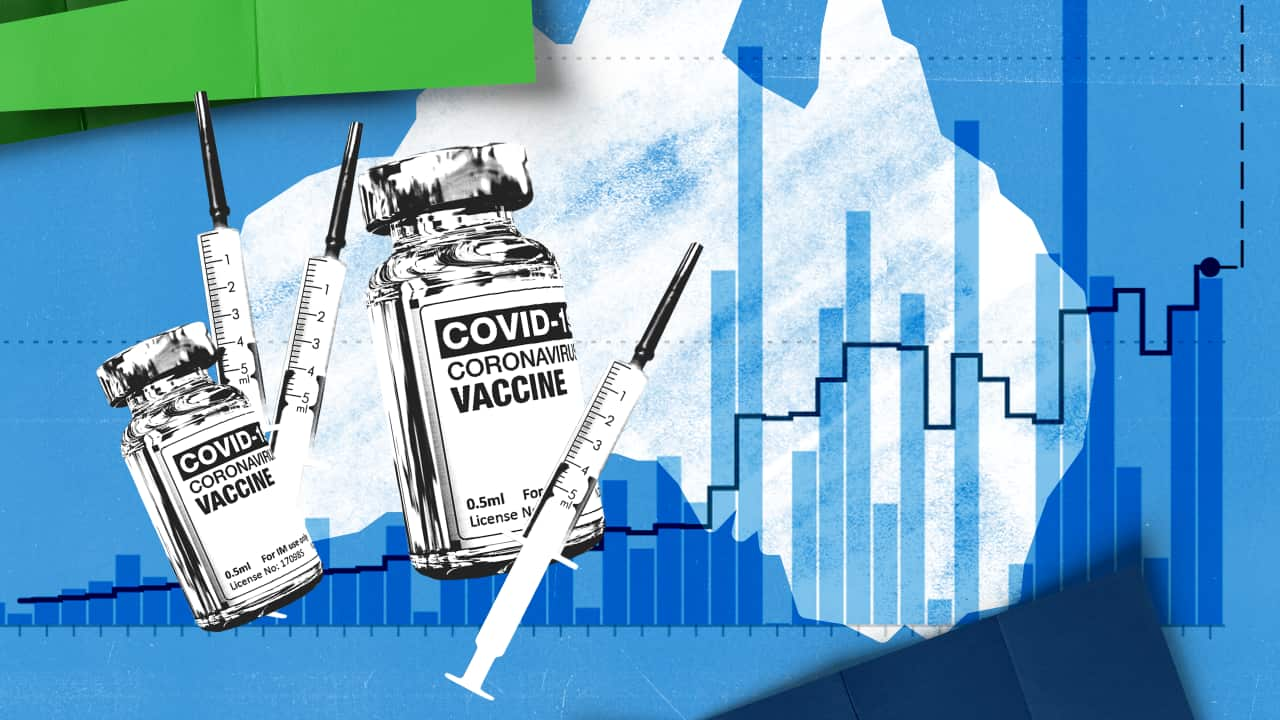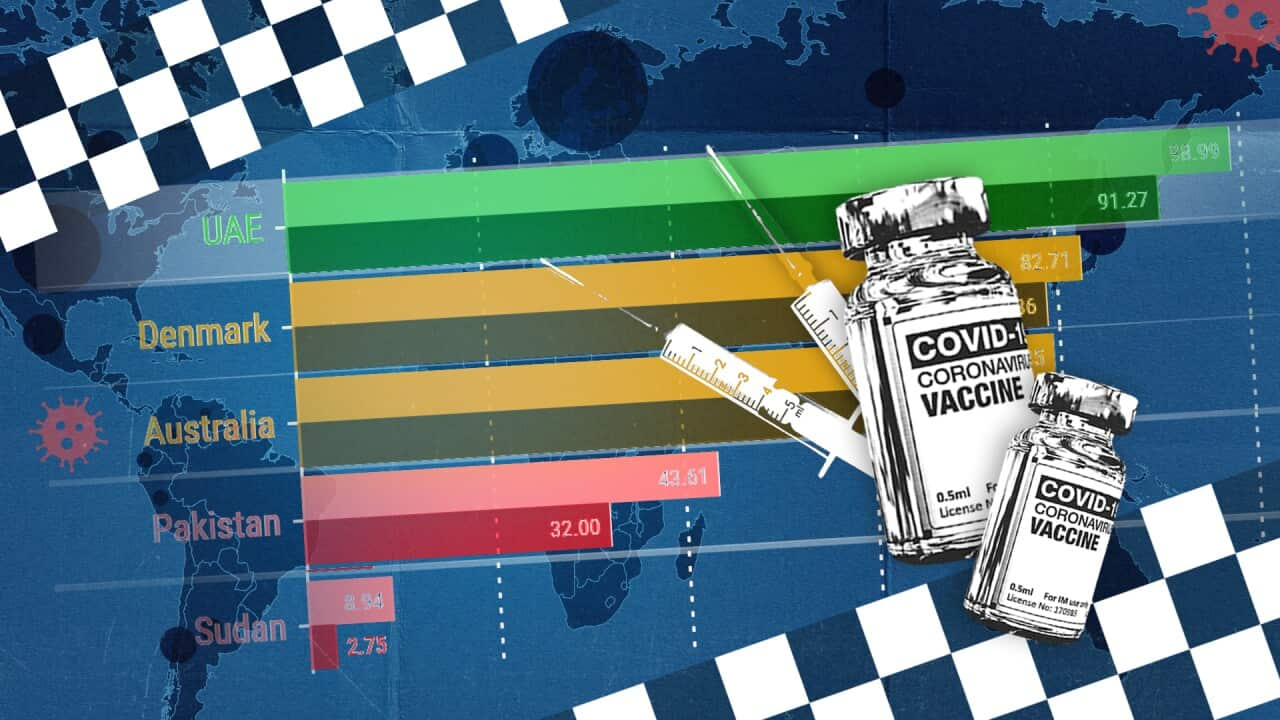After delayed shipments, booking bungles and safety concerns, the federal government last month announced its “recalibrated” vaccine roll-out strategy.
Currently, more than two months after Prime Minister Scott Morrison was among the first in the country to get his jab, .
That's well below the government’s initial plan to have 4 million adults vaccinated by the end of March and everyone (about 20 million adults, meaning 40 million doses) vaccinated by this October.
That schedule was thrown out after AstraZeneca - the backbone of Australia’s vaccination plan - was no longer recommended for people under the age of 50. Under the new approach, those over 50 who don’t qualify for phase 1a or 1b have been brought forward in a bid to use up AstraZeneca supplies and save the limited Pfizer doses for high-risk groups and younger people. As of this week, they can now receive their jab at GP respiratory clinics and state and territory vaccination clinics.
Under the new approach, those over 50 who don’t qualify for phase 1a or 1b have been brought forward in a bid to use up AstraZeneca supplies and save the limited Pfizer doses for high-risk groups and younger people. As of this week, they can now receive their jab at GP respiratory clinics and state and territory vaccination clinics.

People wait in line for a vaccine in Melbourne on 3 May. Source: AAP
On 17 May, the vaccination program under Phase 2a will be expanded to GP surgeries. Up to 15.8 million doses are available for that part of the rollout, which includes catching up on any unvaccinated Australians from previous phases.
Mr Morrison said the change would help get the rollout back on track, with Australia “steadily moving up the board” when compared to other nation’s rollouts - but he has opted not to set new targets.
And while federal leaders scramble to get jabs in arms, the big unanswered question is when we can expect all of Australia to be fully vaccinated. The answer, according to recent data, could be as late as April 2023.
The above visualisation shows how far we are into the rollout and how many doses would have to be administered per week to fully vaccinate Australia’s approximately 20 million adults. Children and teenagers under 18 will not be vaccinated unless advice changes.
Because both Pfizer and Astra-Zeneca - the two vaccines currently approved for use in Australia - require two doses to become effective, that’s about 40 million jabs.
In order to get everyone vaccinated by the end of 2021, more than 1 million vaccines would need to be administered each week. Over the past week, just shy of 370,000 doses were given out.
The Department of Health declined to comment on when those under 50 in Australia could realistically expect to receive their vaccine.
'A very long time'
Mary-Louise McLaws, one of Australia’s leading epidemiologists and an advisor to the World Health Organization, has long warned it would likely take a couple of years for the country to be fully vaccinated, despite the government’s early optimism.
“If we continue at this rate, it will take us a very long time,” she said.
“At the current speed, with just the over 50s, where we’re doing at about 40,000 injections, occasionally 60,000 [per day], I’ve got it that it will take at least 10 to 12 months.
And then we haven’t even touched the 20 to 49-year-olds.”
The government's planned early vaccinations were intended to cover high-risk groups including frontline health, quarantine and border workers, disability and aged care residents and workers, Indigenous Australians over 50 years old, and everyone over 70.
But last month it was revealed the with fewer than 100 of Australia’s more than 6,000 homes receiving their first doses. The government has promised to finish the aged care rollout within the coming weeks.
What now?
Australia's rollout has seen the “perfect storm” of problems come together to make a huge logistical challenge even bigger, Professor McLaws said. “There are just so many things that can make or break the rollout.”
“[The delay] doesn’t surprise me at all, because it takes an enormous amount of experience to run a mass vaccination program - and it’s been a very long time since we had kids lining the streets for polio injections.”
But, she said, there are ways the government could speed up the process. In order to move towards a goal of 100,000 injections per day, Professor McLaws would like to see mass vaccination hubs occupying stadiums and ovals. She also said the defence force should be called in to assist with logistics.
In order to move towards a goal of 100,000 injections per day, Professor McLaws would like to see mass vaccination hubs occupying stadiums and ovals. She also said the defence force should be called in to assist with logistics.

The Morrison government has scrapped the original vaccination targets. Source: AAP
“We need to be much more innovative,” she said. “Without more hubs, we’re not going to get to that 100,000 plus injections per day.”
Mr Morrison has praised the current rollout, arguing Australia is on par with, or ahead of, other nations including France, Canada, South Korea, New Zealand.
Australia also doesn’t have access to the same amount of vaccines that the United States and the United Kingdom do, allowing them to complete their vaccinations more quickly.
“That enables them to do the large, mass-scale rollouts that you're seeing in those countries. In most other countries, that isn't the opportunity, including here in Australia,” he said last month.
As a result, the government has now given up on setting targets that can “get knocked about by every to and fro of international supply chains” and instead plan to focus on priority populations ahead of winter.
“One of the things about COVID is it writes its own rules,” Mr Morrison said.
“Here in Australia, our challenge is to make sure that we continue to keep Australia as open as possible so life can return to as normal ... while protecting Australia from the impact of COVID-19 coming into our country.”











